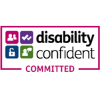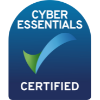Introduction
At Access Training we acknowledge that our operations have an effect on the environment and always strive to minimise this impact.
We recognise our legal responsibilities under the Environmental Protection Act 1990 to ensure that, as far as is reasonably practicable, all activities associated with our business, will be undertaken in a manner which ensures environmental care and protection.
It is our aim to achieve environmental best practice for all activities, to make best use of resources and to minimise waste in order to lessen our impact on the environment. We will achieve this by working in partnership and through the individual actions of our staff and learners.
We have identified our key environmental aspects that contribute our environmental and carbon footprint:
Headline Commitments
Our environmental commitment can be demonstrated in our established objectives and goals below:
The Sustainability Panel
Access Training has formed a Sustainability Panel to implement the organisation’s objectives and ensure that improvements are made.
The team is led by Sustainability Champion Claire Lloyd, with membership from all areas of the organisation such as quality, finance and ICT departments. Additional Sustainability Champions are being sought from the Operations team.
Year 1 Project Objectives – 2021-22
Year 2 Project Objectives – 2022-23
2023-24
Citizenship Calendar
Sustainability training and awareness for all learners will be incorporated into the Access Training Citizenship Calendar from September 2023.
The aim is to raise the level of awareness of our learners about what Access Training is doing to be more sustainable as well as providing guidance on what they can do themselves.
At Access Training we acknowledge that our operations have an effect on the environment and always strive to minimise this impact.
We recognise our legal responsibilities under the Environmental Protection Act 1990 to ensure that, as far as is reasonably practicable, all activities associated with our business, will be undertaken in a manner which ensures environmental care and protection.
It is our aim to achieve environmental best practice for all activities, to make best use of resources and to minimise waste in order to lessen our impact on the environment. We will achieve this by working in partnership and through the individual actions of our staff and learners.
We have identified our key environmental aspects that contribute our environmental and carbon footprint:
- Consumption of electricity, gas, water, and other fuels
- Waste generation
- Transport emissions
- Procured goods and services with their own environmental impact
Headline Commitments
Our environmental commitment can be demonstrated in our established objectives and goals below:
- Compliance with all applicable standards, laws, requirements, regulations and public/customer expectations.
- Monitoring our key resource usage and implementing conservation techniques to achieve our environmental targets.
- Implement a waste/recycling policy.
- Commitment to achieving Net Zero emissions by 2025.
- Minimising unsustainable transport through the development of a travel plan
- Products and equipment, wherever possible, are selected with regard to their environmental impact.
The Sustainability Panel
Access Training has formed a Sustainability Panel to implement the organisation’s objectives and ensure that improvements are made.
The team is led by Sustainability Champion Claire Lloyd, with membership from all areas of the organisation such as quality, finance and ICT departments. Additional Sustainability Champions are being sought from the Operations team.
Year 1 Project Objectives – 2021-22
- Research different methods / models for establishing / benchmarking carbon usage.
- Measure current/past energy/carbon usage.
- Identify external support for measuring/monitoring and reducing carbon usage.
- Include section on carbon neutrality within 21/22 Citizenship Calendar to engage learners.
- Develop carbon/environmental projects for study programme learners.
- Deliver carbon/environmental projects for study programme learners.
- Raise carbon/environmental awareness amongst staff (inset day, yammer etc.)
- Identify and recommend actions to reduce energy/carbon usage for staff and learners.
Year 2 Project Objectives – 2022-23
- Sustainability steering group to be established and nominated sustainability champions to be implemented.
- Cycle to Work Scheme implemented.
- Promote active employee participation such as car share, public transport usage and cycle schemes. If 5 users participated this would reduce our footprint by approximately 4.76 tCO²e per year.
- Participate in further training.
- Produce a carbon report.
- Offsetting projects chosen and implemented; staffing projects chosen if applicable.
2023-24
- Reduce carbon footprint and increase our Zellar score to 300.
- Invest in carbon offsetting to reduce carbon footprint.
- Continue programme of rolling improvements to lighting, replacing fluorescent lights with more energy efficient LEDs.
- Implement a further programme of engagement activities with staff and learners via Citizenship Calendar and Sustainability Champions.
Citizenship Calendar
Sustainability training and awareness for all learners will be incorporated into the Access Training Citizenship Calendar from September 2023.
The aim is to raise the level of awareness of our learners about what Access Training is doing to be more sustainable as well as providing guidance on what they can do themselves.
You have seen the savings that Access Training has made, but what does that look like? How much is one tonne of CO2?

















